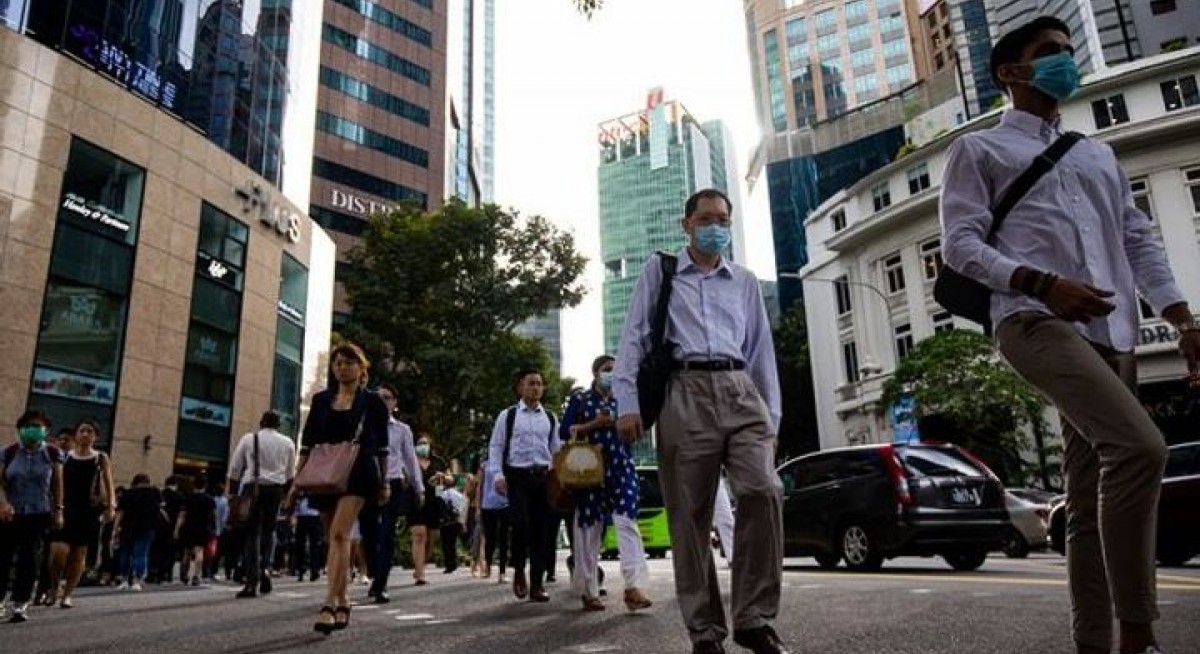Even in the best of times, more than 10% of the world’s population suffers from anxiety and depression. More and more young people are seeking help for mental health issues; according to Singapore’s Institute of Mental Health (IMH), those aged between 19 and 35 make up about 45% of new patients diagnosed with a mental illness every year. The pandemic has only raised stress levels manifold.
But while it’s easy to offer assistance to people who talk about having a problem, many do not. Sometimes they are ashamed; sometimes they might just not know what is happening to them; and sometimes they don’t know where to turn to for help. For instance, they might not realise when they are having a panic attack or entering a depressive episode because they’ve never had those experiences before.
Role of employers
That’s why employers need now more than ever to provide support, and to recognise that in the same way digital technology can help keep people on the job, it can also contribute to their mental well-being.
For example, last year before the outbreak, the US Department of Veterans Affairs was using an app called GRIT (Get Together in Transition) to help veterans and active-duty service members improve mental resilience and overall well-being. The app combines IBM’s AI and chat-bot platforms with neuroscience-based technology to provide customised insights and services right on users’ devices – such as finding a job, writing a resume, and enhancing social connections for support.
In Singapore during the Circuit Breaker, We Care Community Services used video conference tools and a cloud-based call centre to enable its counsellers to work from home and continue connecting with people at need.
In future, we can expect to see more demand for personalised mental health management, using data collected from multiple sources to create customised treatments for patients. With prior permission from patients, data can be retrieved from various digital sources and used to assess their behavioural and emotional states. Non-identifiable data in aggregate form can also be used to detect patterns and identify general needs across groups of people.
At the workplace
It’s no surprise, then, that more and more companies are prioritising an inclusive culture and workplace, because mental health has been an oft-ignored aspect of inclusivity for too long. A recent report from the IBM Institute for Business Value names the work environment as one of the most significant factors that can affect an employee’s mental health. It is also one that employers can directly influence.
There are three focus areas of mental health employers and the workforce should prioritise right now:
• Resilience: That’s the ability to be able to bounce back from a traumatic event and adapt to adversity. Resilience can apply to organisations as well; it is a skill that can be learned, strengthened, and practiced by employees. Companies can foster resilience through culture and policy.
For managers this means understanding if an employee has to home-school their children for a few hours, or if the employee just needs to take a break and go for a walk or meditate. Employers can offer online educational resources like resilience training, and online programmes to develop healthy habits that can build mental and emotional resilience.
• Fear: Fear is an evolutionary signal that captures our attention when we sense danger. While our initial response is fight or flight, our cognitive human brain then forms a plan. Once we assess that risk, make a plan, and set it in motion, fear is no longer an issue.
Companies can provide tools and resources to help develop a clear plan of action for their workforce, their families, and communities. The goal is to focus on action and find a new sense of equilibrium. Employers can offer confidential support programmes for employees via online or phone counselling. Studies show that these virtual approaches are as effective as face-to-face meetings.
• Self-care: This is a combination of what we to do protect our mental and physical health. Adopting policies at the employer level that offer resources for self-care – such as mindfulness apps, access to mental health professionals, online courses, exercise videos, etc – can help employees balance their personal and professional lives and stay engaged.
IBM provides confidential support programs to employees and their families. In Asia Pacific, our Employee Assistance Program (EAP) provides short-term counselling for life events and everyday challenges including work stress, family/parenting issues, anxiety and depression.
We should never assume that people will seek help when they need it, so it’s important to inform the entire workforce of digital resources available to them. That way, anyone who needs help can benefit without having to reveal to a manager that they are struggling.
While we are living through a traumatic event that will forever change our lives, there is no reason we cannot emerge from this better and more prepared to nurture the mental health of our people.
Tanya Heng is Vice President, Human Resources, IBM Asia Pacific



